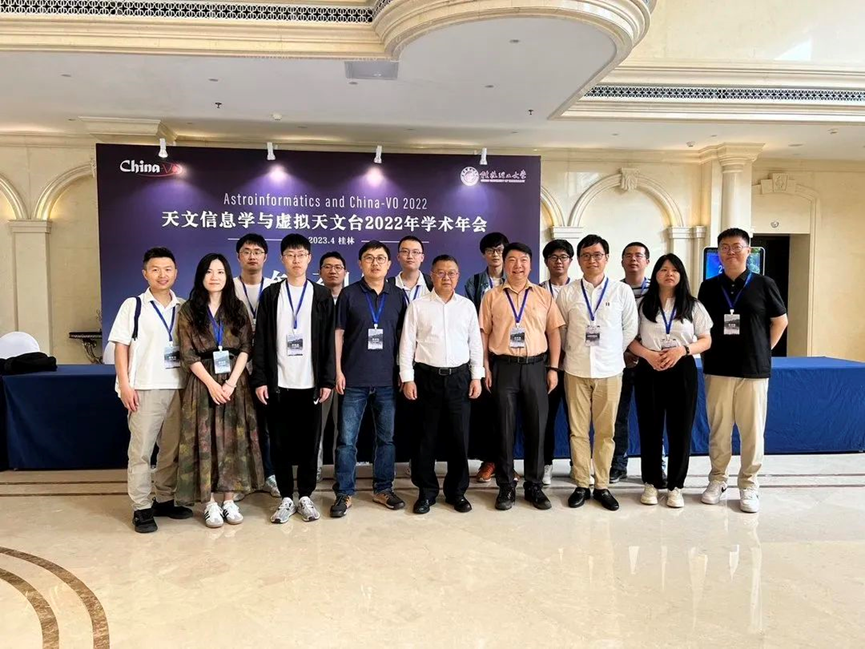

The ever-increasing amount of astronomical data has made the application of intelligent computing in astronomical research an irresistible trend. The National Astronomical Data Center (NADC) entered into an agreement with Zhejiang Lab (ZJ Lab) on April 20, whereby the two sides agreed to jointly establish the ZJ Lab Branch, NADC to conduct collaborative research on intelligent computational astronomy.

CUI Chenzhou, Chief Scientist of the Astroinformatics Research Group (Virtual Observatory) and Executive Deputy Director of the NADC, signs the contract with ZHAO Xinlong, Vice President of ZJ Lab
The NADC, one of the 20 national scientific data centers supported by the Ministry of Science and Technology, is responsible for the management, compilation and integration of scientific data in astronomy and for formulating relevant standards and specifications and building the astronomical data resource system, with the support of the National Astronomical Observatories of China (NAOC). So far, the NADC and ZJ Lab have established intensive cooperation on the multi-modal astronomical data knowledge association-based recommendation system.
Nowadays, humans are stepping into a smart society where everything is interconnected. With the development of digitization, intelligent computing has come to pervade every aspect of social production, life, scientific research and education and so on, becoming the cornerstone of a smart society. ZJ Lab has always been committed to building a world-leading base for fundamental research and innovation of intelligent computing. It has built and put into service a premier computing and data center integrating heterogeneous computational powers such as intelligent supercomputing, intelligent computing cluster and brain-like computing, with a daily capacity of over 200 computing R&D tasks; and has sped up the construction of a major scientific and technological infrastructure of intelligent computing data reactor, driving the development of scientific research in astronomy, materials, genetics, breeding, and pharmaceuticals.
In the field of astronomy, relying on the FAST (also known as "China's Sky Eye") and intelligent computing data reactor, the Lab has built the FAST@ZJLAB intelligent computing astronomical platform. This platform is designed for the deep data mining of FAST observations and the detection of astronomical radiation phenomena such as fast radio bursts ("FRBs") on a large scale.

It is reported that the intelligent computing astronomical platform consists of the FRB, molecular spectrum, and astrochemistry databases, together with data analysis and visualization platforms in related fields. Among them, the FRB database (Blinkverse, literally meaning "blinking universe"; https://blinkverse.alkaidos.cn/) gathers more than 5,500 pulse data entries and stores data of 35 dimensions and dynamic spectra generated by multiple observation devices, making it the world's largest FRB database in terms of its coverage.
Blinkverse is currently readily accessible by researchers in the field of astronomy. And its FRB data analysis and visualization platform, which has taken shape, will elevate the efficiency of FRB search dozens of times compared with traditional computing methods.
In the future, ZJ Lab will work with scientists around the world to make major breakthroughs in astronomy, build an ecological cooperation platform, and promote the transformation of scientific research paradigms in the field of astronomy, striving to yield major astronomical discoveries.















